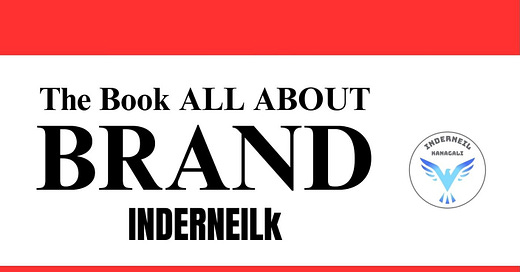In today's crowded marketplace, a product or service needs more than just functionality – it needs a brand. But what exactly is a brand? It's a question that gets thrown around a lot, so let's break it down.
Think of a brand as the unique identity of a product, service, or even a company. It's what sets it apart from the competition and creates a lasting impression in the minds of consumers. It's not just a name or a logo, though those are definitely important pieces of the puzzle. A brand encompasses everything from the visual design and packaging to the messaging and overall customer experience.
The Building Blocks of a Brand:
A brand is built upon several key elements:
Name: A memorable and relevant name is crucial. Think of names like Apple, Google, or Amazon – they're instantly recognizable and evoke certain feelings.
Logo: A visual representation of the brand, often a symbol or design, that helps consumers quickly identify the product or company. Nike's swoosh and McDonald's Golden Arches are prime examples.
Slogan/Tagline: A short, catchy phrase that encapsulates the brand's essence or value proposition. Think of slogans like "Just Do It" (Nike) or "Think Different" (Apple).
Packaging: The design and materials used to package a product play a significant role in brand perception. Think of the iconic Tiffany blue box.
Messaging: The way a brand communicates with its audience through advertising, marketing materials, and social media. This includes the tone of voice, the values emphasized, and the stories told.
Customer Experience: Every interaction a customer has with a brand, from browsing the website to purchasing a product to contacting customer service, contributes to the overall brand experience.
Why Are Brands So Important?
Brands are valuable assets for companies. A strong brand can:
Create Recognition: In a world of endless choices, a recognizable brand helps consumers easily identify and remember a product or service.
Build Trust and Loyalty: A brand that consistently delivers on its promises builds trust with customers, leading to repeat business and brand loyalty.
Command a Premium Price: Consumers are often willing to pay more for a trusted brand, even if there are cheaper alternatives.
Provide a Competitive Edge: A strong brand differentiates a product or service from its competitors, making it more appealing to consumers.
Building a Brand Takes Time and Effort:
Creating a successful brand isn't an overnight process. It requires careful planning, consistent execution, and ongoing management. Companies invest significant resources in market research, brand strategy, and creative development to build and maintain their brands. They also seek legal protection for their brands through trademarks.
Beyond the Tangible:
A brand is more than just the sum of its parts. It's also about the feeling it evokes. It's about the connection it creates with consumers. A truly successful brand resonates with its target audience on an emotional level.
Source:
https://www.inderneilk.com/shop/tbaab-5




